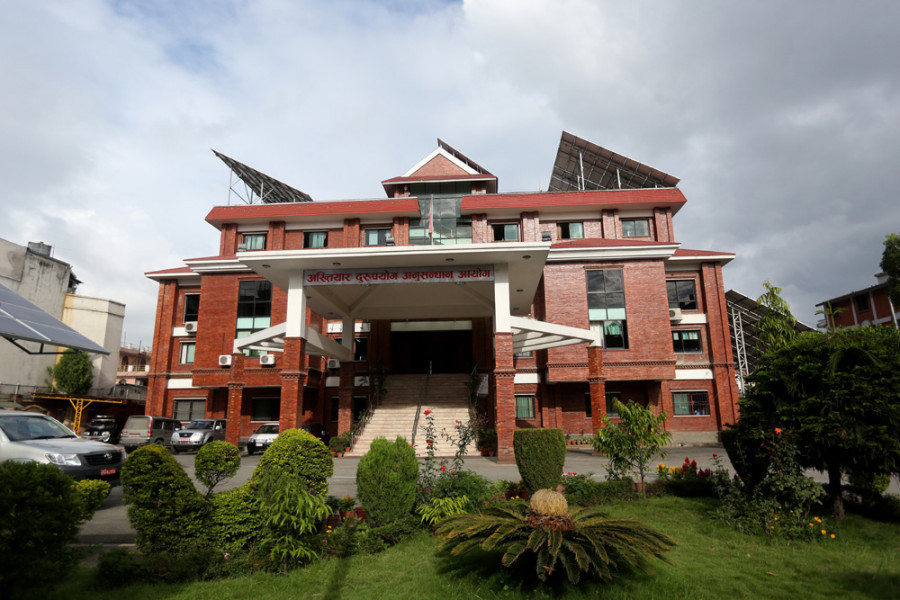Editorial
Watch your Act
The proposed amendment to the CIAA Act puts democracy in harm's way.
Not long ago, the Commission for the Investigation of Abuse of Authority (CIAA) was headed by a man named Lokman Singh Karki. Karki took the commission for a ride, using it to hound individuals and institutions it was not supposed to be bothered about: journalists, researchers, NGOs, medical colleges and media among others. The constitutional body mandated to investigate corruption by public officials metamorphosed into Karki’s weapon to intimidate his critics. If the third amendment to the CIAA Act, currently tabled at the National Assembly, gets through, the commission won’t need another Karki-like figure for it to go rogue this time around.
The proposed amendment allows the commission to poke into the affairs of private and other establishments that the government defines as ‘public institutions’. These include banking agencies, medical colleges, public limited companies, and institutions that receive funding from the government. What’s more, the government can change the definition to include any other establishment as per its whims, effectively facilitating the commission's entry into nearly every establishment in the country. The commission’s authority can thus be misused to witch-hunt the government’s critics and other institutions that do not toe its line. If it so wishes, the government can turn the anti-corruption watchdog into its hunting dog in no time.
The commission is constitutionally mandated, as per Article 239 (1), to conduct 'investigations of any abuse of authority committed through corruption by any person holding public office'. It couldn’t get any clearer. But the amendment bill, being pushed by the Prime Minister’s Office, grossly misrepresents Article 239 (6), which says that other functions, duties and powers, and rules of procedure of the CIAA 'shall be provided for in the federal law'. It is by misinterpreting this clause that the PMO is pushing for an expansion of the commission's jurisdiction. There seems to be no stopping the government from misinterpreting constitutional clauses and redefining phrases to suit its interests.
It's not that the private sector is devoid of irregularities. But the government already has a range of institutions that can keep them in check. If those institutions are not enough, it may even set up separate institutions to check irregularities and exploitation in the private sector. But to change the mandate of as crucial an institution as the CIAA to suit its interests is unwarranted and unjustified. The amendment is certain to terrify the private sector that is already struggling to stay afloat in an environment unfavourable for new investments. Moreover, the bill comes at a time when the commission has not been able to shed its public image of going after low-level government officials who take Rs 1,500 bribes even as it lets high-level officials and leaders off the hook, including those named in the Lalita Niwas land grabbing scandal.
There is no reason for the government to push for such an amendment when the commission is already dragging its feet towards fulfilling its limited mandate. The commission looked into only 64 percent of the cases in the fiscal year 2018-19 due primarily to the lethargy of its staff and the lack of resources. Overburdening an institution that is already underperforming is a sure-shot way of causing its implosion. The amendment, if passed in its proposed form, is certain to turn the commission into a means to harass the public rather than establish accountability among the powerful.




 14.24°C Kathmandu
14.24°C Kathmandu














